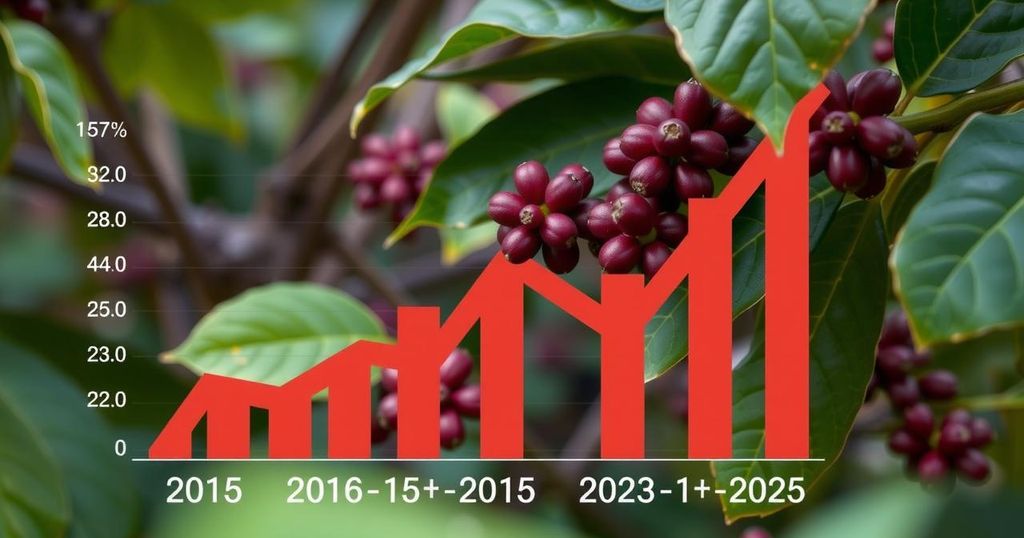The price of coffee is projected to increase by 2025 due to climate change effects, particularly droughts affecting arabica bean production in Brazil. This rise in costs will have a considerable impact on consumers and reflects wider agricultural challenges posed by changing environmental conditions.
The anticipated price of coffee is expected to rise significantly by 2025 due to adverse climate change effects. Recently, arabica bean prices surged to $3.50 per pound, marking a 70% increase from the previous year. Professor David Ortega from Michigan State University attributes this trend largely to severe drought in key coffee-growing regions, particularly Brazil, which has faced its most severe drought in decades. This situation is further complicated as arabica beans account for approximately 60% of global coffee production, exacerbating the anticipated impacts on consumers around the world.
The repercussions of climate change extend beyond coffee, impacting various crops and industries. Current grocery prices are already high, and contrary to prior expectations of stabilization, ongoing droughts and market fluctuations indicate a continued rise in coffee prices. Similarly, other crops such as hops and wine grapes face remarkable changes due to environmental conditions, affecting their production and quality. The continuing challenges faced by coffee growers amid these climate variations suggest that the industry will struggle to meet ever-increasing global demand, leading to multiple years of production deficits.
The phenomenon of rising coffee prices directly relates to climate change, which has severely affected key coffee-producing areas. Brazil, as the leading exporter of coffee, has experienced drought conditions that have devastated arabica bean crops, prompting significant price increases that are likely to resonate throughout the global market. These changes are symptomatic of a broader agricultural crisis where various food crops are suffering similarly, signaling a need for sustainable agricultural practices to mitigate these effects.
In conclusion, the coffee industry is poised for substantial price increases in the coming years, primarily due to the significant impact of climate change on crop production. With the deterioration of environmental conditions leading to production deficits across multiple years, consumers should prepare for elevated coffee prices. This trend also highlights the broader implications of climate change on global food supply and necessitates urgent attention to sustainable agricultural practices to combat these challenges.
Original Source: www.thedailymeal.com







